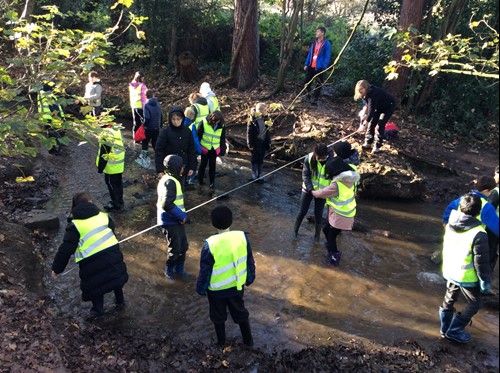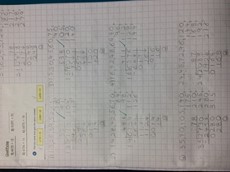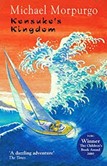What have Y6 been up to?
Spring Week 2
We are now all getting into our new text: Cogheart by Peter Bunzl as well as making great progress in our computing topic all about creating and designing webpages.
Thanks for those of you who made it to our mini art gallery...it certainly did showcase how fabulous and unique all the children's artwork was.
Here is a collection of photos from last week when we able to play in the snow together!

Spring Week 1
What a fabulous first week back! Our Year 6s continue to impress us with their positive attitudes and maturity - it's just a shame we ended with a snow day! Here is the home learning guidance for Friday:
SNOW DAY 9/1/26
For today's home learning activities, please use the BBC bitesize website.
English:
KS2 English SATs paper - Grammar, Punctuation, Spelling - Year 6 Practice - BBC Bitesize
Choose at least 3 activities to complete. You can choose your own, or we recommend these:




Maths
KS2 SATs Maths Paper - Arithmetic - Year 6 Practice - BBC Bitesize
Again, choose at least 3 activities to complete.

For Mrs Willoughby's group, we recommend:


And for Miss Chantry's group:


(The pictures are just images, not links - follow the link above and then choose the activities you want to complete!)
Autumn Week 15
Thank you to everyone who attended the family craft afternoon, it was a really lovely atmosphere.




Finally, we have been SO proud of the behaviour and attitude of all of Year 6 in these final weeks and wish everybody a fabulous holiday. Remember to keep reading and keep practising on Times Tables Rockstars!!!
Autumn Week 14
Lots of Christmas activities this week, thanks to the traditional Dothill Advent Calendar. We have really enjoyed making cards, stickers and calendars, as well as singing along to Christmas music while we work. Don't forget our family event next week - Tuesday at 2pm. All welcome to join in with some craft making.
Autumn Week 13
PE this term has been using our geography theme of rivers to develop our rhythmic gymnastics skills. It has been absolutely fabulous watching the creativity and strength develop in all of our Year 6s. Perhaps our favourite has been using the ribbons to represent the different stages of a river.
Autumn Week 12
The hardworking year 6s began the next round of practice SATs assessment this week. Watch out for their paper coming home next week so you can look a their scores and see where they could use some extra practice.
Remember... the standardised scores range from 80 - 120 and 100 is the expected standard for the end of Year 6.
Autumn Week 11
This week has seen us learning to use our French number knowledge to complete calculations!! We can count to 100, say if a number is greater or less than another, and read and write addition and subtraction sentences. It feels like quite an achievement!!

Autumn Week 10
This week began with a rather fabulous trip around Dothill Nature Reserve, where we explored the streams and spotted some of the features we had been learning about in our geography lesson. Once again, the behaviour of the children was excellent and it was lovely to be out enjoying nature together.

Autumn Week 9
This week was very busy with 25 children taking part in Bikeability training at all levels, from learning to ride a bike, right up to how to ride safely on the roads. The behaviour of the children throughout was excellent and we are really proud of the progress they all made in being safer on their bikes.
We also showed great determination and resilience in maths this week as we tackled everyone's favourite skill: long division!!! Ask your child to show you how it works - see if they can remember the process (and if they know what Does McDonalds Sell Burgers helps them remember!)
Autumn Week 8
A fantastic first week back after half term. We are well into our new topics: Rivers in geography, Light in science, Living in a Town in French and Religion and the Individual in RE.
We are also very excited to have started our new books in reading: Kensuke's Kingdom by Michael Morpurgo.


Autumn Week 7
This week saw the completion of our Design Technology projects to design and make a motorised fairground ride. Well done to everyone who brought in materials - we had a really good range of choices for all groups as a result. Also, all groups worked really hard on Tuesday to work together to bring these designs into reality - it was really exciting seeing all our ferris wheels and chair swings in action.

Autumn Week 6
In our PSHE lessons this week we talked about PANTS - the NSPCC initiative teaching children about their bodies and their rights. We had fascinating discussions about whether different scenarios and different behaviours were acceptable, unacceptable or 'it depends'. Well done to all in Year 6 who contributed so maturely and thoughtfully in the lesson this week. You will be seeing a leaflet at home shortly so that you can continue these important conversations in your family settings. For further information, please see the link below:
Talk PANTS: Conversation to help keep children safe | NSPCC
Autumn Week 5
Our PE this half term has been focussed on leadership skills: we have been taking it in turns to lead out group in the warm-up, skills development, main activity or cool down element of the lesson. It has been an absolute pleasure to stand back as teachers and let the children take charge! Although there have been some challenges, we are really impressed with how the children have shown teamwork skills such as: motivating others; clear communication; resilience and adaptability.


Autumn Term - Week 4
This week has seen the development of our computing unit on working collaboratively using the internet. We have learnt to email each other (and our teachers!) and some of the benefits of collaborating online, such as the ability to save different versions and make rapid changes. We have also learned about some of the risks - such as not sharing personal information and understanding private and public networks.

Autumn Term - Week 3
Year 6 continue to work well in lessons and impress us with their efforts.
This week we have completed our first independent write of the year, based on a short animated film 'The Piano' by Aiden Gibbons. We have taken great pride publishing our work in our Writing Journals.
publishing our work in our Writing Journals.
In history, we are learning about the Industrial Revolution in the Victorian era. This week, we have looked at the changes that occurred in Britain during this period.
In maths, we have revised our written addition and subtraction methods, as well as built our understanding of place value in numbers up to 10,000,000.
We are moving onto multiplication and division next week, as well as beginning to work on fractions, so please encourage as much practice on Times Tables Rockstars as possible, as this will really support them to be successful.

Autumn Term - Week 2
We have all now really settled in to being responsible, independent and mature Year 6s and are setting the standards high for the rest of Dothill!
In reading lessons, we are reading Holes by Louis Sachar - an incredibly entertaining and intriguing story about a young boy named Stanley Yelnats being set to a detention centre called 'Camp Green Lake'. Ask your child these: What is unusual about Stanley's name? What is surprising about Camp Green Lake?
In Science lessons we are learning more about electrical circuits and have been practising recognising when a circuit will or will not work, and using circuit diagrams to represent them.
Towards the end of this half term, we will be making our own model fairground rides in DT. Please could we have any clean pringles tubes, kitchen roll tubes, yoghurt pots and eggboxes brought in over the next couple of week to help with the build!

